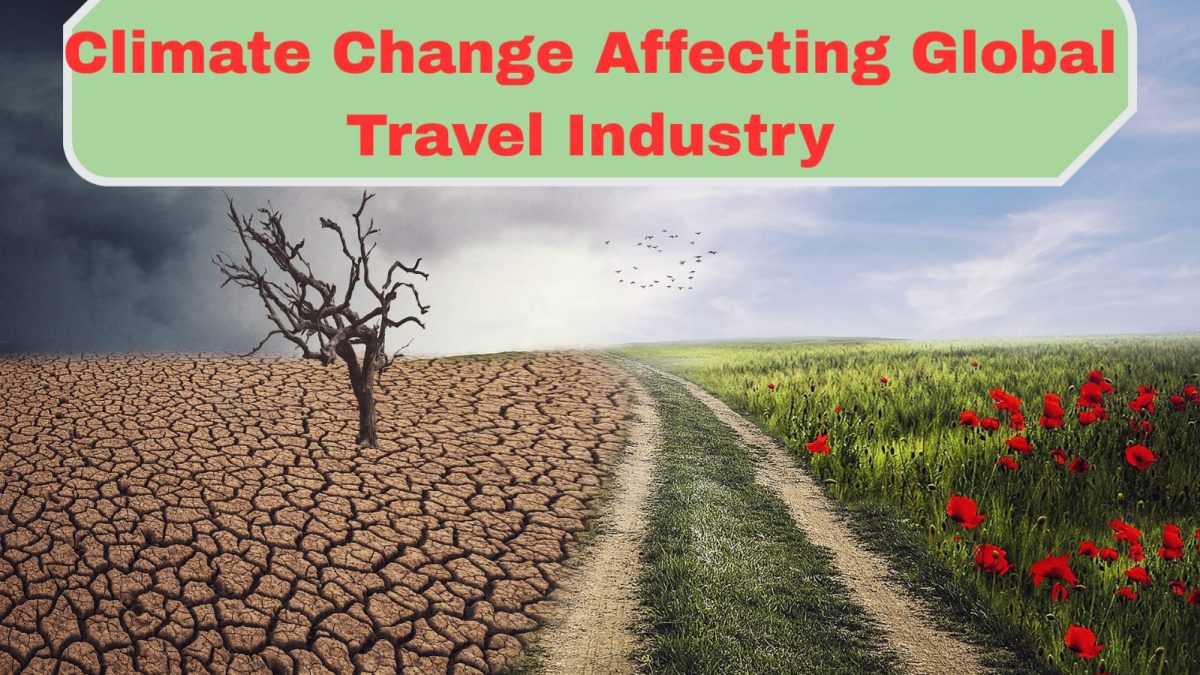How Climate Change is Affecting the Global Travel Industry

How Hotels are Becoming Sustainable
1 April 2025
Rising of Slow Travel: Why Tourists are Choosing Quality over Quantity
15 April 2025
Categories
Tags
- 10 Benefits of Travel and Tourism
- Benefits of Galileo for travel agents
- Best Companies to do Job in Travel and Tourism Industry in India
- Career in Travel and tourism in India
- career in travel industry
- Certificate course in travel and tourism
- Event planning and decorating courses
- Future In Travel
- How to become travel agent in India
- How to choose the right travel and tourism course in India
How Climate Change is Affecting the Global Travel Industry
Climate change is having a profound impact on the global travel industry, affecting destinations, transportation, and traveler behavior. Here are the key ways in which climate change is reshaping the travel and tourism sector:
-
Rising Temperatures Affect Popular Destinations
-
Many popular tourist destinations are experiencing extreme heat, making travel uncomfortable.
-
Famous attractions like the Mediterranean, Southeast Asia, and the Middle East are seeing reduced visitor numbers during peak summer seasons.
-
More Frequent Natural Disasters
-
The occurrence of hurricanes, floods, wildfires, and storms has intensified, becoming both more common and more destructive.
-
Popular destinations such as the Caribbean, the coastal U.S., and Australia suffer from recurring weather disasters, leading to infrastructure damage and travel disruptions.
-
Melting Ice and the Threat to Cold-Weather Tourism
-
Glaciers are shrinking, affecting adventure tourism in the Alps, Himalayas, and Antarctica.
-
Ski resorts in regions like Switzerland and Canada struggle with shorter snowfall periods and unreliable snow conditions.
-
Impact on Coastal and Island Destinations
-
Rising sea levels threaten island nations like the Maldives and coastal Cities such as Venice and Miami.
-
Coral reef bleaching due to warming oceans is destroying marine biodiversity, affecting diving and snorkeling tourism.
-
Changes in Wildlife and Eco-Tourism
-
Shifts in animal migration patterns impact safaris and wildlife tourism in Africa, the Arctic, and other regions.
-
Climate-related habitat destruction reduces biodiversity, making it harder for eco-tourism destinations to attract visitors.
-
Travel Disruptions Due to Extreme Weather Events
-
Flight delays and cancellations increase due to storms, heavy snowfall, and extreme heat.
-
Rising temperatures affect aircraft performance, leading to weight restrictions and fewer passengers per flight.
-
Sustainability and Changing Traveler Preferences
-
Travelers are becoming more environmentally conscious, preferring eco-friendly travel options.
-
The demand for sustainable tourism, including carbon offset programs, green hotels, and alternative transport options, is growing.
-
Government Regulations and Carbon Emissions Policies
-
Airlines and cruise companies face stricter emissions regulations, leading to higher ticket prices.
-
Governments impose taxes on high-carbon travel, encouraging shifts toward train travel and electric vehicles.
-
Economic Impact on Tourism-Dependent Regions
-
Many small island nations and developing countries rely heavily on tourism revenue.
-
Climate-related challenges lead to job losses, reduced income, and economic instability in these regions.
-
Innovations and Adaptation Strategies
-
Destinations are investing in climate-resilient infrastructure and sustainable tourism initiatives.
-
Airlines are exploring biofuels and electric planes, while hotels adopt eco-friendly practices to reduce their carbon footprint.






